Related Research Articles

Great Zimbabwe is a medieval city in the south-eastern hills of the modern country of Zimbabwe, near Lake Mutirikwe and the town of Masvingo. It was the capital of the Kingdom of Zimbabwe from the 13th century, having been settled in the 4th century AD. Construction on the city began in the 11th century and continued until it was abandoned in the 15th century. The edifices were erected by ancestors of the Shona people, currently located in Zimbabwe and nearby countries. The stone city spans an area of 7.22 square kilometres (2.79 sq mi) and could have housed up to 18,000 people at its peak, giving it a population density of approximately 2,500 inhabitants per square kilometre (6,500/sq mi). It is recognised as a World Heritage Site by UNESCO.
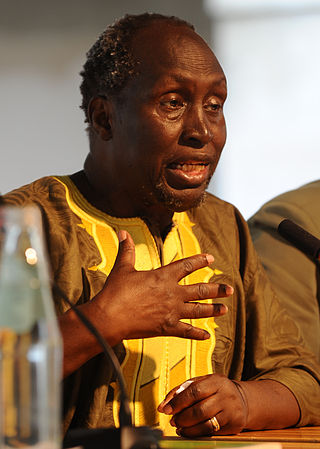
Ngũgĩ wa Thiong'o is a Kenyan author and academic, who has been described as "East Africa's leading novelist". He began writing in English, switching to write primarily in Gikuyu. His work includes novels, plays, short stories, and essays, ranging from literary and social criticism to children's literature. He is the founder and editor of the Gikuyu-language journal Mũtĩiri. His short story The Upright Revolution: Or Why Humans Walk Upright has been translated into 100 languages.

Chenjerai Hove, was a Zimbabwean poet, novelist and essayist who wrote in both English and Shona. "Modernist in their formal construction, but making extensive use of oral conventions, Hove's novels offer an intense examination of the psychic and social costs - to the rural population, especially, of the war of liberation in Zimbabwe." He died on 12 July 2015 while living in exile in Norway, with his death attributed to liver failure.
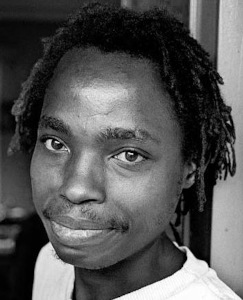
Dambudzo Marechera was a Zimbabwean novelist, short story writer, playwright and poet. His short career produced a book of stories, two novels, a book of plays, prose, and poetry, and a collection of poetry. His first book, a fiction collection entitled The House of Hunger (1978), won the Guardian Fiction Prize in 1979. Marechera was best known for his abrasive, heavily detailed and self-aware writing, which was considered a new frontier in African literature, and his unorthodox behaviour at the universities from which he was expelled despite excelling in his studies.

Tsitsi Dangarembga is a Zimbabwean novelist, playwright and filmmaker. Her debut novel, Nervous Conditions (1988), which was the first to be published in English by a Black woman from Zimbabwe, was named by the BBC in 2018 as one of the top 100 books that have shaped the world. She has won other literary honours, including the Commonwealth Writers' Prize and the PEN Pinter Prize. In 2020, her novel This Mournable Body was shortlisted for the Booker Prize. In 2022, Dangarembga was convicted in a Zimbabwe court of inciting public violence, by displaying, on a public road, a placard asking for reform.
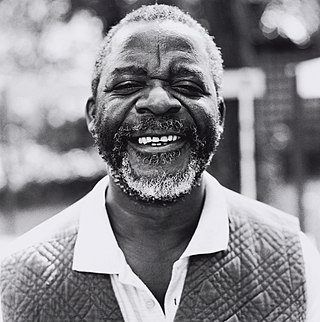
Charles Lovemore Mungoshi, was a Zimbabwean writer.

Thomas Archibald Barron is an American writer of fantasy literature, books for children and young adults, and nature books.

Nervous Conditions is a novel by Zimbabwean author Tsitsi Dangarembga, first published in the United Kingdom in 1988. It was the first book published by a black woman from Zimbabwe in English. Nervous Conditions won Best Book of the Commonwealth Writers' Prize in 1989.
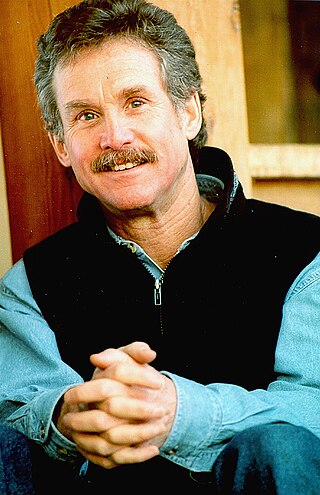
David Quammen is an American writer focusing on science, nature, and travel. He is the author of fifteen books. Quammen's articles have appeared in Outside, National Geographic, Harper's Magazine, Rolling Stone, The New York Times Book Review, The New Yorker, and other periodicals.
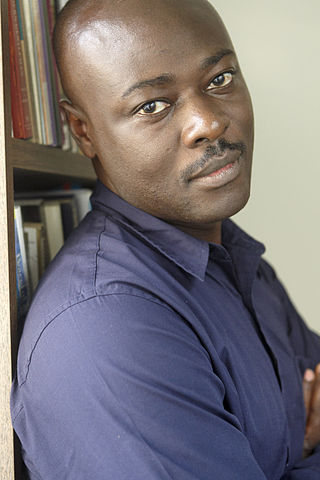
Helon Habila Ngalabak is a Nigerian novelist and poet, whose writing has won many prizes, including the Caine Prize in 2001. He worked as a lecturer and journalist in Nigeria before moving in 2002 to England, where he was a Chevening Scholar at the University of East Anglia, and now teaches creative writing at George Mason University, Fairfax, Virginia.

Brian Chikwava is a Zimbabwean writer and musician. His short story "Seventh Street Alchemy" was awarded the 2004 Caine Prize for African writing in English; Chikwava became the first Zimbabwean to do so. He has been a Charles Pick fellow at the University of East Anglia, and lives in London. He continues to write in England and put out an album titled Jacaranda Skits.

Petina Gappah is a Zimbabwean lawyer and writer. She writes in English, though she also draws on Shona, her first language. In 2016, she was named African Literary Person of the Year by Brittle Paper. In 2017 she had a DAAD Artist-in-Residence fellowship in Berlin.
Julius Masimba Musodza is a Zimbabwean author.

NoViolet Bulawayo is the pen name of Elizabeth Zandile Tshele, a Zimbabwean author. In 2012, the National Book Foundation named her a "5 under 35" honoree. She was named one of the Top 100 most influential Africans by New African magazine in 2014. Her debut novel, We Need New Names, was shortlisted for the 2013 Booker Prize, and her second novel, Glory, was shortlisted for the 2022 Booker Prize, making her "the first Black African woman to appear on the Booker list twice".
Mukudzeyi Mukombe, better known as Jah Prayzah, is a Zimbabwean contemporary musician and lead member of the band Third Generation. Regarded as the most prolific musician of his generation in the country, he was popularly referred to by fans and media as "Masoja", the Shona word for "soldier", a name he earned mostly because of his signature band uniform of military regalia. The name "Jah Prayzah" comes from his name, "Mukudzeyi", which means "Praise Him".
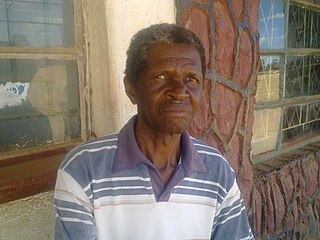
Morgan Mahanya is a Zimbabwean Shona-language writer of detective fiction and war fiction. He has published 13 books since 1976, including books in Shona and in English, both fiction and nonfiction. Mahanya is one of the pioneering writers of detective stories in the Shona language. His books Chidamwoyo, Zvinoyera and The Wound are about the Rhodesian Bush War.

Barbara Makhalisa, also known by her married name as Barbara Nkala, is a teacher, Zimbabwean writer, Ndebele translator, novelist, editor and publisher, one of the earliest female writers published in Zimbabwe. She is the author of several books written in Ndebele, as well as in English, of which some have been used as school textbooks. Barbara is married to Shadreck Nkala. They have three adult children and six grandchildren.
Valerie Tagwira is a Zimbabwean writer who is a specialist obstetrician-gynecologist by profession. Her debut novel The Uncertainty of Hope, published in 2006 by Weaver Press, won the 2008 National Arts Merit Awards (NAMA) Outstanding Fiction Book.
The National Arts Merit Awards is a set of annual awards granted by the National Arts Council of Zimbabwe (NACZ) in recognition of outstanding achievements in the arts and culture.
References
- ↑ Simon Gikandi, ed., Encyclopedia of African Literature. Routledge; 2002. ISBN 978-0-415-23019-3
- ↑ "African Languages student writes first-ever ChiShona PhD thesis at Rhodes University". www.ru.ac.za. 2011-07-21. Retrieved 2021-04-01.
- ↑ Ignatius T. Mabasa Archived 2014-02-22 at the Wayback Machine , Poetry International Rotterdam, retrieved 17 October 2013.
- ↑ "NAMA Awards 2009". Pindula. 2018-02-25. Retrieved 2020-08-30.
- ↑ Mtukudzi honoured at NAMAs Archived 2013-07-14 at the Wayback Machine , New Zimbabwe, 5 February 2009.
- ↑ Tinashe Muchuri Reviews Mabasa’s “Imbwa Yemunhu", Munyori Literary Journal, 25 September 2013.
- ↑ NAMA Award Winners list, Bulawayo24, 17 February 2014.
- ↑ NAMA big winners revealed Archived 2014-02-22 at the Wayback Machine , New Zimbabwe, 22 February 2010.
- ↑ Battlelines drawn at NAMA, NewsDay, 7 February 2013.
- ↑ Mabasa goes online to evade piracy, NewsDay, 21 Sept 2013.